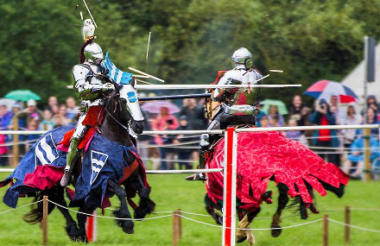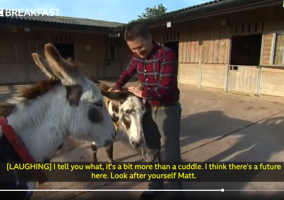Happy Friday, dear readers. We have reached the end of a week where the nation came together to wait with baited breath for the announcement of this year’s lucky winner. No, Society Diary is not talking about the Love Island final – it’s the appointment of a new minister for civil society of course!
Yes, after a weekend of grumblings on Twitter and a letter to the Times about the government forgetting about the charities brief, Baroness Barran was announced as the new leader of charity policy.
Naysayers continued to moan that Baroness Barran’s unpaid role means the government is not taking the charities brief as seriously as before. But Diary is won over by the fact that Baroness Barran has tons of sector experience, a more focused brief than her predecessor and, most importantly, a catchy name.
Let’s ride that high into a summary of this week in charity satire.
Drugs problem
Regular readers of this column may have noticed that Diary appears to have a drugs problem. Each week, it pledges not to mention illegal substances but then something vaguely amusing and even more vaguely charity-related happens that forces Diary to write about it.
So this week in charity drugs news, national newspapers are warning that Boris Johnson’s appointment of DCMS’ civil society expert Danny Kruger as his political secretary may indicate a government plan to legalise cannabis.
Sorry to break it to those readers who are optimistic about Kruger’s appointment as a sign that BoJo has big plans for the sector. According to the papers, it’s all about the Mary Jane.
Kruger, apparently nicknamed “Freddy” by his pals, wrote an article for The Spectator in 2017 called “Make Drugs Dull: Legalising cannabis the Canadian way”, in which he discussed “the potential for a regulated market”.
The Times and the Sun were also concerned about Johnson’s appointment of Blair Gibbs, who leads policy at the Centre for Medicinal Cannabis, as an adviser.
Gibbs is blunter in his opinions, tweeting last month: “When the UK gets round to legislating to regulate a legal market for recreational cannabis, it will need to learn from other models but also devise one that fits its own culture and institutions best.”
However, those worried by UK’s impending transformation into Amsterdam needn’t worry, as Number 10 rolled out a statement insisting comments by the pair “do not reflect government policy”.
Diary is sure the papers have got the wrong end of the spliff on this one. But if their concerns do come to fruition, perhaps being able to get gange in Sainsbury’s might help take the edge off the country’s post-Brexit collapse. And if a charity expert helps to get us there, then so be it.
The scourge of Dingle
As a diligent/lazy* journalist, Diary considers Google Alerts to be one of its most essential tools. Any mention of the word “charity” on the World Wide Web and Diary will be on it in a flash.
It is with some alarm therefore that Diary has tracked the shenanigans of Charity Dingle.
Diary initially presumed this to be a charity set up to do good work in the small town of Dingle in Co Kerry, Ireland, but it turns out she is of course a long-serving character in Emmerdale. Diary wouldn't have known this as we haven’t watched since 1989 in protest at the removal of the word “Farm” from the show’s name.
Far from doing the good work that is par for the course in our sector, this Charity appears to have been not only running a pub but falling into an ever more concerning spiral of infamy, taking in car theft, prison time, multiple husbands and children born out of wedlock.
But this time she has surely gone too far, if the latest Express headline is to be believed: “Charity Dingle kills Lee Posner to finish him after ‘coma’ bombshell?”
The charity sector has enough on its plate trying to maintain/repair* public trust in the face of various scandals/media stitchups*, without the UK’s most famous Charity of them all going and murdering someone.
Of course, Express headlines are not to be taken at face value, and it is unclear that Charity Dingle did actually murder someone. The question mark in the headline is doing A LOT of heavy lifting.
But still, her behaviour has been a source of concern for some time.
What about other prominent Charitys? Could they be helping to redress the balance and repair the public perception of charity? Well the news is not entirely good here either.
One of the people on this list is a distinguished politician who Wikipedia claims was linked with allegations of corruption. Another is a track and field athlete who was banned for a positive drug test.
All of this appears to be having an effect on opinion in the UK, with the name Charity plummeting in popularity in England and Wales since the mid-90s according to the ONS’ baby name tracker.
Given the debate that continues about how best to measure public trust, and the value that is often placed on the trustworthiness of “the man on the street”, this could be the most reliable indicator we have.
Could it be that things are worse for the charity sector than we thought?**
*Delete one of these depending on your personal view
**No
Let’s make jousting an Olympic sport
Over the years campaigners have achieved many important victories that have improved society immeasurably. From the abolition of slavery to banning people from taking sneaky photos up women’s skirts, these are the people who make the world a better place.
Following in that tradition, English Heritage has launched a new campaign to change the rules. And not just any rules, Olympic rules. It wants to make jousting an Olympic event.
Yes, jousting, which began in the olden times (or as historians say the 10th century), has been popular for centuries. It was the spectator sport of choice for the likes of Henry VIII, though it has declined somewhat in popularity in recent years as neither Sky nor BT Sport hold the television rights.
“Jousting is one of the world's oldest equestrian sports, yet has never been recognised as an Olympic sport. We want to change that,” rails the charity’s website.
English Heritage argues that attiring yourself head to toe in heavy metal armour, balancing on a horse, wielding a long pointy sharp stick, charging full speed at someone who looks identical, and not dying, is comparable to many other Olympic sports.
Fair enough. Diary does wonder what the global reach of the sport is though? Sure it was popular throughout Europe in medieval times, but how many nations are really likely to enter teams?
Still it could be an easy medal for us so maybe we should all get behind it. Sporting success and waving flags is after all the thing that can help bring the country together.
Anyway, watch the video. It is magnificent.
|
Related articles












